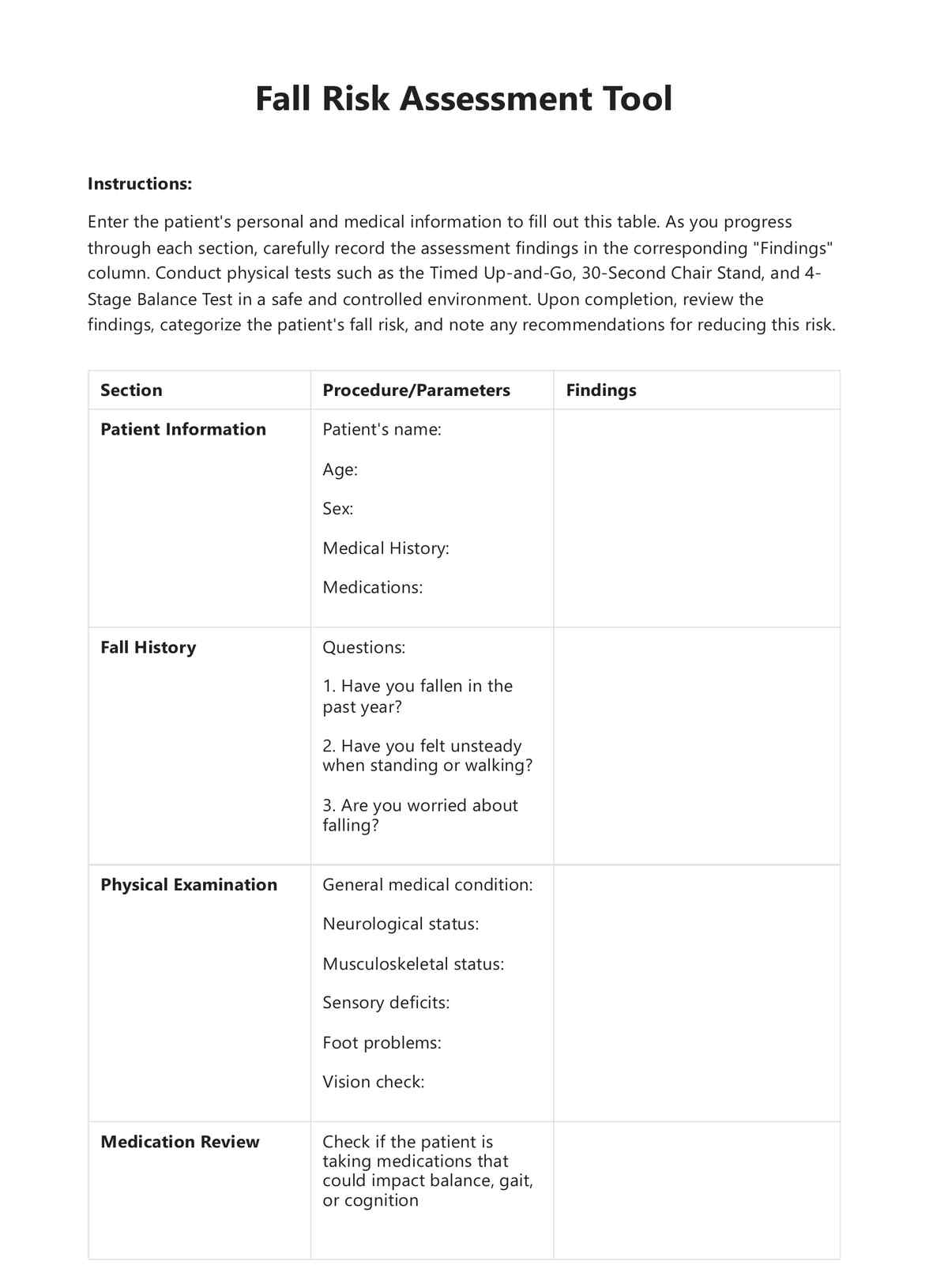The Single Strategy To Use For Dementia Fall Risk
The Single Strategy To Use For Dementia Fall Risk
Blog Article
The Of Dementia Fall Risk
Table of ContentsGetting My Dementia Fall Risk To WorkNot known Factual Statements About Dementia Fall Risk Rumored Buzz on Dementia Fall RiskNot known Facts About Dementia Fall RiskDementia Fall Risk for Dummies
Nevertheless, based upon signs and signs, such as proof of head injury or a new focal neurologic deficiency, calculated tomography or MRI of the brain may be shown - Dementia Fall Risk. An analysis for reasons for syncope ought to be carried out only if there is strong suspicion, as when it comes to frequent, inexplicable drops
Doctor make use of a fall threat assessment to identify your risk elements for falling and make practical referrals. Some people attempt to reduce their loss threat by limiting their task or striving to be more mindful. Yet these sympathetic behaviors aren't sufficient. A loss risk evaluation is very important since knowing which variables boost your opportunities of falling helps you: Decrease your threat of dropping or harming yourself.
All grownups 65 years and older need to have a first fall risk screening. Have dropped in the past year. Worry about falling.
Some Known Questions About Dementia Fall Risk.

, and objectives particularly customized to patients who are at risk for drops. A is defined as an occasion that results in a person coming to rest accidentally on the ground or floor or various other lower degree (WHO, 2021).
According to the Centers for Condition Control and Avoidance (CDC),, triggering over 34,000 deaths for that age team. Falling is the 2nd leading reason of fatality from unintentional injuries worldwide. Fatality from falls is a serious and endemic issue amongst older people. It is approximated that fall fatality prices in the U.S

Every year, over 800,000 individuals are hospitalized because of falls. Nurses play a significant function in stopping succumbs to their individuals with education and learning, assessing autumn risk, creating much safer settings, and Continue providing interventions in protecting against injuries from falls. Several threat elements and conditions add to drops, consisting of the following:. Aged 65 years and older; reduced arm or leg prosthesis; usage of assistive tools such as walker, crane, and mobility device; living alone.
Individual will certainly demonstrate careful avoidance actions. Individual and caretakers will certainly execute techniques to enhance safety and prevent falls in the home. Autumns are because of several look these up factors, and an all natural strategy to the specific and atmosphere is essential. Mean an individual is thought about at high risk for drops after the screening.
Dementia Fall Risk for Dummies
A requires using a validated device that researchers have analyzed to be beneficial in naming the causes of drops in a person. The level of autumn danger can be figured out making use of the analysis of intrinsic and external variables.
Individuals are much more most likely to drop once more if they have sustained one or even find more information more drops in the past six months. The older population is at increased risk of fall-related readmissions based on a research study determining the aspects predictive of repeat falls linked outcomes (Prabhakaran et al., 2020).
The ability of individuals to safeguard themselves from drops is affected by such factors as age and growth. Older people with weak muscular tissues are much more likely to drop than those who keep muscle strength, flexibility, and endurance.
Fascination About Dementia Fall Risk
Less comparison level of sensitivity was quite connected with both raised rates of drops and other injuries, while decreased visual acuity was just related to increased autumn price (Timber et al., 2011). Sensory perception of environmental stimuli is extremely important to safety and security. Vision and hearing disability limitation the person's capacity to view hazards in the surroundings.
Older adults who have poor equilibrium or trouble strolling are most likely to fall. These troubles might be related to absence of workout or a neurological cause, arthritis, or other medical problems and treatments. An essential danger element highlighted in a research study is that adults with rheumatoid joint inflammation go to high danger of falls, including swollen and tender reduced extremity joints, tiredness, and use of psychotropic drugs (Stanmore et al., 2013).
Report this page